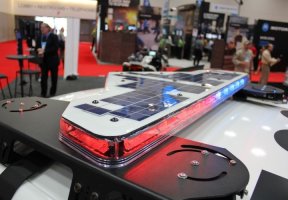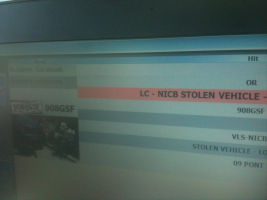Jamey@NNE said:
But with alpr you are just taking the picture you still have to run it in the databases or dmv same as writing it in a notepad.
I know how the systems work. I know how the LE/municipal version works, where all license plates scanned are stored for a set period of time, and can be cross ran for tracking, and have to be ran for owner info individually. I know how the version used by the repo drivers and spotters search for pre loaded hits as well as collect all plates scanned along with a GPS tag. I also know that these private systems are not typically set up for the drivers and spotters to access. However, I also know, (as should everyone who has read the article linked above) that these data bases are for sale. I also know that there are subscription based sites that have DMV info, and are used with computer programs that take the ALRP data and matches it with the DMV data with an 85% success rate.
LE agencies and municipal agencies like Parking Enforcement respond to hits for warrants, unpaid parking tickets, stolen vehicle/plates, and in some states, inspection and insurance. My cities Citizens on Patrol cars now have ALRP's. All the license plates that are scanned are stored for a few months, depending on agency policy. This system has proven very effective in criminal investigations. All ALRP scans are reviewed in the area a specific crime is being investigated. The plates scanned in the targeted area are then cross ran for scans city wide. A vehicle that shows up at an early time on one side of the city, later in the target area, and then back at the originating side becomes a vehicle of interest. The plates that attract interest are also ran through the DMV, and registered owners are checked for history as well as known associations. Dallas has closed robberies, homicides, and rapes with the assistance of ALRP. This is a very useful tool for
Law Enforcement.
And yes, private citizens can take a picture of a license plate, or write it down, and then run the plate though public data. It is very easy. I know because I do it. Every time I see a plain car with ALRPs I stop, and am very obvious while taking pictures, and have publicdata on an app on my phone. I am also nosy and like to screw with wackers and wannabes, and use this same procedure when my interest is peaked. If I find something of true concern, it gets sent to the local LEO's.
But the private companies are not collecting and matching strictly for concerns of public safety. While Vigilant Solutions makes big noise about their relationship with LE agencies, it is pretty obvious that they are indeed collecting, identifying, and tracking vehicles and drivers for profit (and how does a LE agency profit from ALRP? They dont, LE agencies are not profit based).
From their web page FAQ;
The private data that is shared with Vigilant Solutions’ hosted solution comes from a number of sources. The largest source of data is from Digital Recognition Network (DRN), a partner company to Vigilant.
Digital Recognition Network is a data company exclusively focused on data derived from vehicles. By capturing, storing and grouping data on vehicle location, where vehicles go and who drives them, DRN is able to provide value to clients to help them make better, more profitable decisions. An industry pioneer in vehicle asset location technology and services, DRN fuels a national network of more than 550 Affiliates employing Vigilant’s mobile LPR to gather data. Because this technology is used in every major metropolitan area in the United States, DRN captures data on over 50 million vehicles each month. This data is shared to Vigilant’s National Vehicle Location Service for use by law enforcement – there is no reciprocal sharing of data back to DRN.
Vigilant Solutions FAQs
Vigilant Solutions is pretty clear that "license plate reader data, by itself, is completely anonymous", but then go on to explain how they link the data, mostly through Digital Recognition Network, another private data company that is a partner (read owned) by V.S. Vigilant is fighting pretty hard against various states attempts to limit private use of LPR's, and why would a private company fight against such attempts? Because they sell the info for profit to other private companies. Think about the companies who sell the red light cameras, they only sell to LE agencies, and all the data is kept regulated within the LE agency. The red light camera companies provied the equipment and technology, and get a portion of the money paid by the violators, but it is the LE agency who reviews, checks, and issues these violations, the company does not know who, just how many are violating.
This is real, private companies are tracking our movements. Through our driving habits, credit/debit card purchases, cell phones, and internet use. And with face recognition soft wear becoming more common, the private companies will be tapping into that as well. There is little to nothing we can do to prevent this, except go off the grid, and it really has no bearing on my, yours, or most peoples lives, I just do not care for it.






